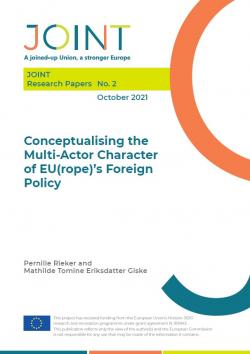Conceptualising the Multi-Actor Character of EU(rope)'s Foreign Policy
While there exists a plethora of theories aiming to make sense of the European Union and its foreign policy, no single existing theory has yet managed to capture the multi-actorness of what can be referred to as “the broader area of EU and European foreign and security policy”. A conceptual framework building on the current literature of differentiated integration, which has become a permanent feature of European integration, may fill that gap. Based on a holistic approach to EU foreign and security policy, looking at both formal and informal processes, such a framework explains the multi-actor character of the EU, while introducing five roles – leaders, followers, laggards, disruptors or leavers – that actors can play in the integration process, either to bring it forward or halt it.
-
Details
Rome, IAI, October 2021, 34 p. -
In:
-
Issue
JOINT Research Paper 2
Introduction
1. The limits of mainstream theories
1.1 EU foreign and security policy as the sum of its parts
1.2 EU foreign and security policy as more than the sum of its parts
2. The added value of multi-level governance and differentiated integration
2.1 Differentiated integration as a new subfield in EU studies
2.2 Differentiated integration in the field of foreign and security policy
3. A new conceptual framework for EU(ropean) foreign policy
3.1 Moving beyond the CFSP/CSDP and the “integrated approach”
3.2 Moving beyond formal differentiated integration
3.3 A framework for studying EU(rope)’s role in the world
3.4 Introducing the role of agency
Conclusions
References



